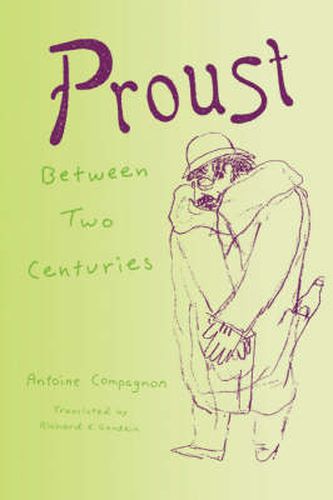Readings Newsletter
Become a Readings Member to make your shopping experience even easier.
Sign in or sign up for free!
You’re not far away from qualifying for FREE standard shipping within Australia
You’ve qualified for FREE standard shipping within Australia
The cart is loading…






Was Marcel Proust the last of the great classics or the first of the revolutionaries? Proust was thirty in 1901 and he died in 1922, living longer in the nineteenth century than he did in the twentieth. His work, especially the monumental sixteen-volume novel Remembrance of Things Past , draws its aesthetic affinities from the century of Baudelaire, Wagner, and Ruskin but at the same time escapes late nineteenth-century decadent aestheticism to reach toward an early twentieth-century modernist stance. In this new, major contribution to Proust studies, Antoine Compagnon analyzes the paradoxical power of Remembrance of Things Past by examining several fundamental fin-de-siecle arguments. Compagnon also explores Proust’s perverse reading of Italian painters, his fascination with etymologies, and sadism and homosexuality in Remembrance of Things Past . The book’s thesis holds that Proust’s essential ambivalence relative to all dogma is a key to his continual appeal to generations of readers.
$9.00 standard shipping within Australia
FREE standard shipping within Australia for orders over $100.00
Express & International shipping calculated at checkout
Stock availability can be subject to change without notice. We recommend calling the shop or contacting our online team to check availability of low stock items. Please see our Shopping Online page for more details.
Was Marcel Proust the last of the great classics or the first of the revolutionaries? Proust was thirty in 1901 and he died in 1922, living longer in the nineteenth century than he did in the twentieth. His work, especially the monumental sixteen-volume novel Remembrance of Things Past , draws its aesthetic affinities from the century of Baudelaire, Wagner, and Ruskin but at the same time escapes late nineteenth-century decadent aestheticism to reach toward an early twentieth-century modernist stance. In this new, major contribution to Proust studies, Antoine Compagnon analyzes the paradoxical power of Remembrance of Things Past by examining several fundamental fin-de-siecle arguments. Compagnon also explores Proust’s perverse reading of Italian painters, his fascination with etymologies, and sadism and homosexuality in Remembrance of Things Past . The book’s thesis holds that Proust’s essential ambivalence relative to all dogma is a key to his continual appeal to generations of readers.